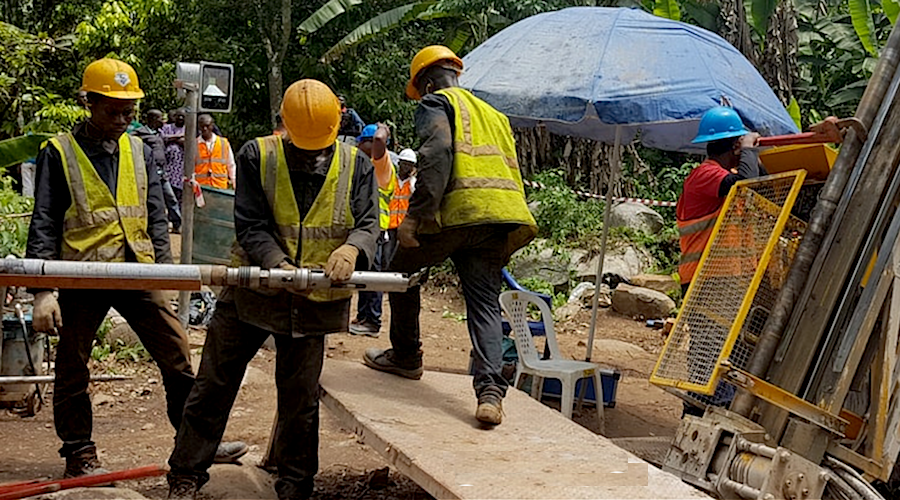
Nigeria’s efforts to persuade investors that it could become a mining destination for metals is receiving a boost from a small Canadian mining company joining a rush for gold in West Africa.
The western tip of the continent is seen as a new frontier as gold miners face a dearth of new discoveries globally.
Africa’s largest oil producer has sizeable untapped deposits of metals including iron ore, gold, zinc and lead but almost all extraction is done on a small-scale or manual basis, said Nigeria’s minister of mines and steel development, Olamilekan Adegbite.
Now the country could be on the cusp of getting its first industrial-scale gold mine from Thor Explorations Ltd., which is developing a project capable of producing 80,000 ounces per year
“These are people who hardly pay any revenue to government,” Adegbite said at a conference in Abuja.
Now the country could be on the cusp of getting its first industrial-scale gold mine from Thor Explorations Ltd., which is developing a project capable of producing 80,000 ounces per year in southwest Nigeria and aiming to start operations in early 2021.
Africa Finance Corporation is investing in the Thor project through a $78 million debt-equity financing package.
Vancouver-based Thor is “the low-hanging fruit to prove to the Nigerian government and the international financing community that mining can be a viable proposition in Nigeria,” Osam Iyahen, AFC’s head of natural resources said. Lagos-based AFC is backed by Nigeria’s central bank and a group of local commercial banks.
Mining made up 4% to 5% of Nigeria’s gross domestic product in the 1960s and 1970s, before foreign operators left the country and oil came to dominate the government’s agenda. Now crude exploration make up 8% to 10% of GDP and brings in 90% of export earnings, whereas the extraction of metal ores accounts for less than 0.1%.
Nigeria aims to increase mining’s contribution to GDP to 3% by 2025, according to Adegbite.
The West African nation is burdened with poor infrastructure and a scarcity of geological data. The government says it’s building a databank to provide easy access to prospective investors on potential areas to target for exploration. It has also put in place incentives, including a tax holiday of as long as five years for projects entering production and the removal of import duties on mining equipment.
Successive governments have pledged to grow mining’s role in the economy since Nigeria returned to democracy in 1999 and legislation supposed to enable the sector was passed 12 years ago.
The country’s reputation poses a major obstacle for traditional mining financiers, according to Segun Lawson, Thor’s chief executive officer.
“When I present this project, it’s very difficult to even get meetings with investors, let alone convince them to put money in,” he said at the conference. “Nigeria is not a known mining jurisdiction.”
Nigeria should reform its laws again to encourage investors to carry out exploration throughout the country as happened in the Democratic Republic of Congo and Zambia in the early 2000s, Peter Major, a mining analyst at South Africa-based Mergence Corporate Solutions said. After both countries dramatically altered their legislation, mining and exploration investment exploded, according to Major.
(By William Clowes)
Comments